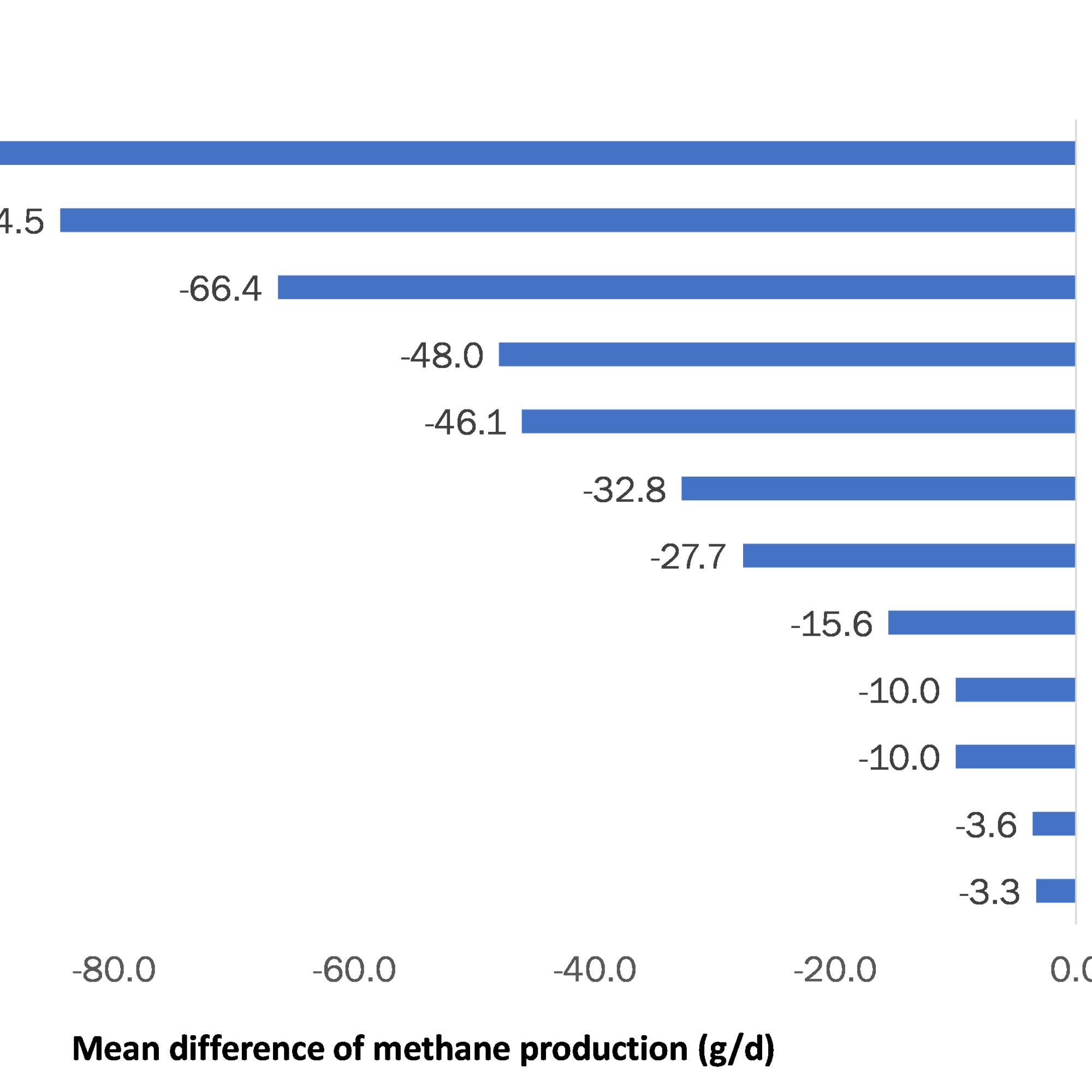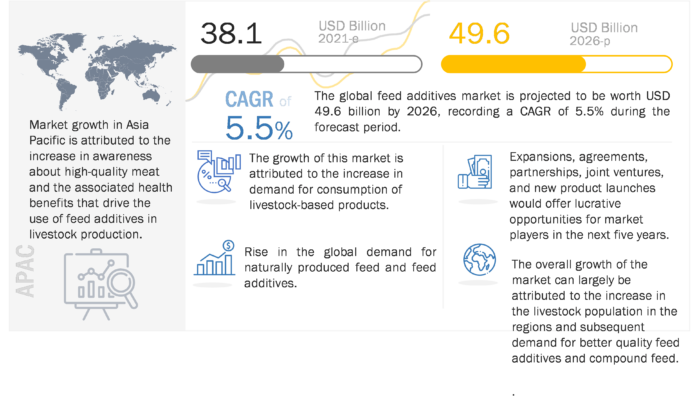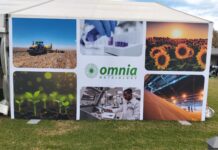Feed additives are a crucial part of animal nutrition as they help to enrich the quality of feed, augment the efficiency of the growth of livestock, prevent against a wide range of diseases, and enhance feed utilization, thereby improving animals’ performance and health. Over the last few decades, significant growth in the consumption of animal-based products, including meat, eggs, seafood, dairy products, and various other non-food products (wool and leather), has fueled the demand for feed production worldwide.
As the demand for animal-based products surged, livestock production has also witnessed a significant increase globally. However, as part of normal digestive processes, livestock generates significant amounts of methane, which result in huge carbon emissions in the atmosphere. According to the data published by the Global Carbon Project in November 2021, the projected total global emissions of CO2 are set to reach 36.4 billion tons by the end of 2021. This rising emission of CO2 is substantially damaging the Earth’s atmosphere leading to extreme weather events, melting of the polar ice caps, the rising of sea levels, and the disturbance of animals’ natural habitats, among others.
The quality of feed and its ingredients plays an important role in the amount of methane produced by every livestock, including swine, bovine, sheep, goats, deer, and camels. One of the traditionally used methods for reducing methane production is by altering to high-quality ingredients in the animal’s diet. Over the past few decades, beef and dairy cattle sectors have made substantial improvements in their carbon footprints due to the rising knowledge about the nutritional quality of feed and its effects on methane formation.
According to the data published in May 2021 by California’s dairy industry, the greenhouse gas (GHG) emissions associated with dairy farm management were ~58.5% lower in 2014 compared to 1964. Similarly, methane emissions associated with the production of 1 kg of milk were ~54.8% lower in 2014 than in 1964. However, according to the Clarity and Leadership for Environmental Awareness and Research Center (CLEAR), University of California, more methane reduction strategies are required to slow the process of climate change by introducing methane-reducing feed additives and supplements to inhibit methanogens in the rumen.
- FIGURE 2 Promising Feed Additives that can Reduce Methane production

Source: The Regents of the University of California.
As the consumption of animal-based products is significantly rising, coupled with increasing demand for lowering the global carbon footprint, major players in the global food industry are stepping up their efforts to reduce greenhouse gas (GHG) emissions by utilizing feed additives such as Bovaer, Agolin, and seaweed. For instance, in November 2021, Starbucks Corporation (US) announced to collaborate with dairy farmers and The Nature Conservancy, a global environmental organization, to start sourcing milk from cows that are fed Agolin, a Swiss-made feed supplement derived from essential oils, to help reduce its methane emissions. These initiatives are anticipated to significantly decrease the global carbon footprint produced due to bovine, which would drive the demand for feed additives globally.
Governments of various countries are also coming up with several initiatives to lower the carbon emission through livestock. For instance, the Australian government launched an ambitious initiative called Low Emissions Technology Statement (LETS), under which the government is developing various technologies to achieve net-zero solutions. According to the data published by the Low Emissions Technology Statement (LETS), 2021 report, the Australian government has announced an additional funding of USD 1.3 billion for low emission technologies. Of this, USD 55.5 million is allotted for the development of soil carbon and livestock feed supplements technology. These supportive government initiatives are anticipated to positively impact the global carbon emission and boost the demand for enhanced feed additives over the foreseeable future.









